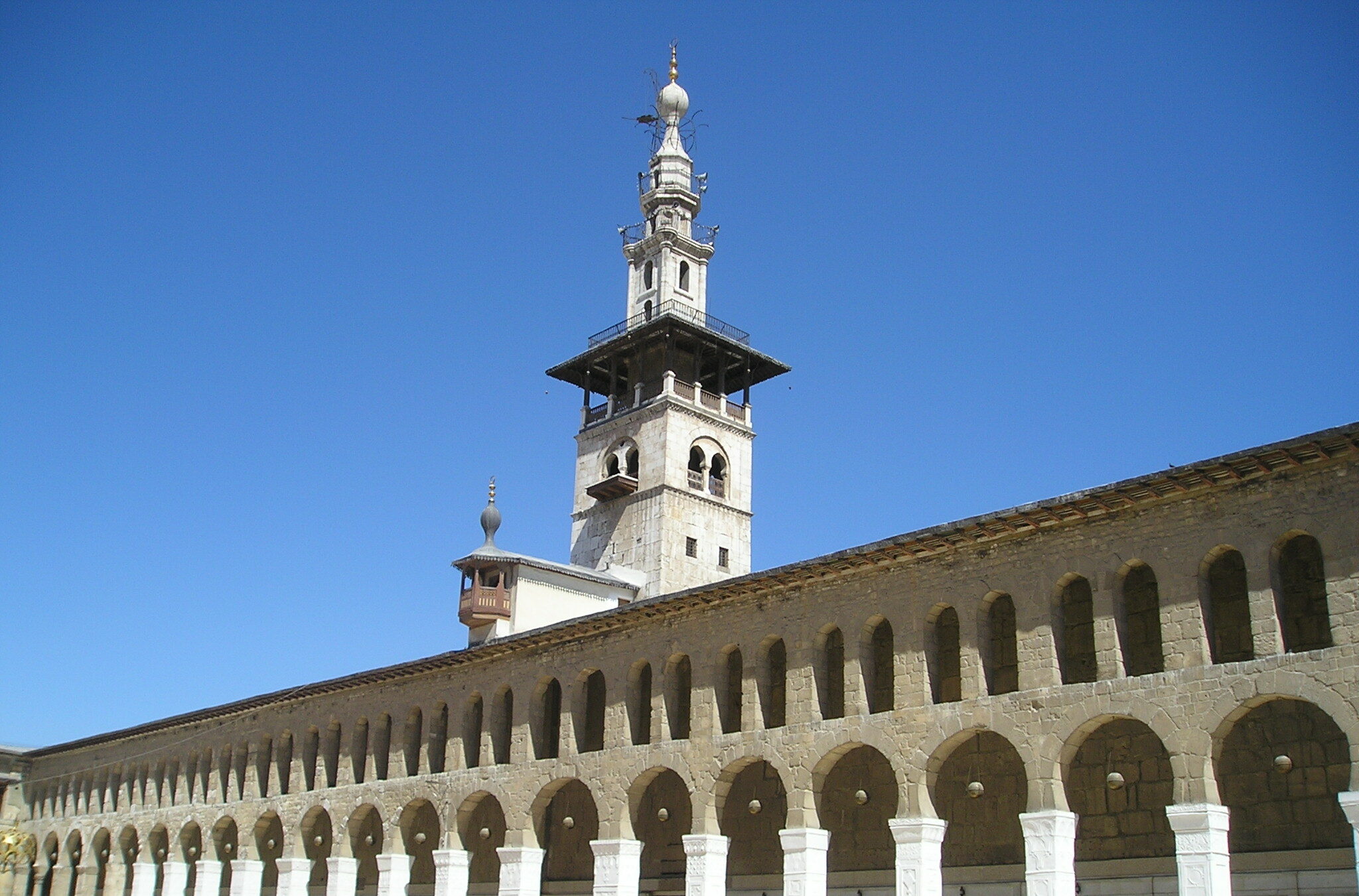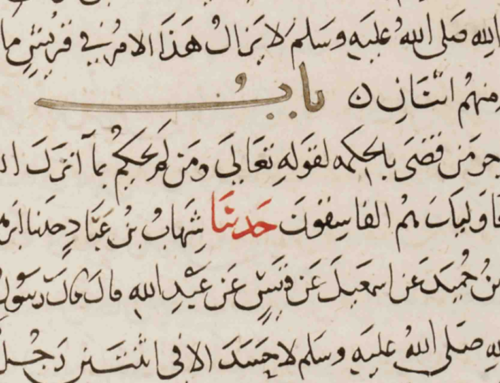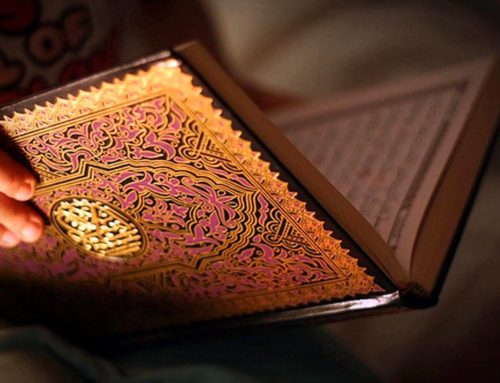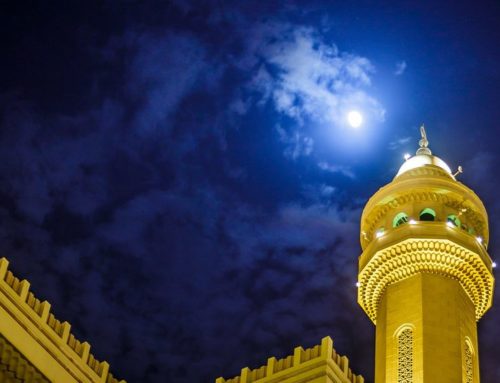Translated by Muhammad Hamood
(Translator’s note: The nuzul (descent) of Sayyiduna ‘Isa / Jesus (peace be upon him) in the last of times is an undeniable reality. In his book Aftab-e-Nubuwwat, Mawlana Qari Muhammad Tayyib, the late rector of Darul ‘Ulum Deoband and the great grandson of its founder, Mawlana Qasim Nanotwi, brings to light a wisdom of this nuzul. He explains that the coming of Sayyiduna ‘Isa (peace be upon him) as a follower of the Last Prophet ﷺ rather than as an independent prophet is a clear proof and reinforcement of the concept of khatm al-nubuwwah (finality of prophethood). The idea that the coming of Sayyiduna ‘Isa (peace be upon him) in the time period of the Last Prophetﷺ somehow contradicts khatm al-nubuwwah as some falsely argue is soundly debunked through the brief discussion below.)
The comprehensiveness of perfection in character that exists in the Messenger of Allah ﷺ is clearly understood from the incident wherein Siddiqah ‘A’ishah (may Allah be pleased with her) was asked about the prophetic character. She responded, “His character was the Qur’an” (Ahmad). In other words, all of that which exists in the Qur’an in the form of knowledge exists in the form of character and aptitude in the Prophet ﷺ … Since the Qur’an encompasses [the knowledge of] all the previous books and is a collection of the Prophet ﷺ’s character, this establishes that his character encompasses all the characteristics of the previous prophets. This is a clear proof for the Prophet ﷺ being the finality of the perfection in character and being at the highest degree of perfection in creation. Hence, it is self-evident from this that the Blessed One ﷺ in whom all the foundations of prophethood are contained and who is superior to all, only he can then be the primary one (asl) of these foundations (prophets).
A covenant was taken from the prophets to believe, follow and aid the Prophet [Muhammad] ﷺ on the basis of him being the primary prophet as is clear from the verse of the Qur’an, “When Allah took the covenant of the prophets” )3:81). The Prophet ﷺ elucidated, in light of this verse, that the previous prophets are all under a final prophet by saying, “If Musa (peace be upon him) was alive, he would have had no option except to follow me” (Musannaf Ibn Abi Shaybah). The upshot of this is that Musa (peace be upon him) – the resolute messenger who was given a shari’ah – had to be obeyed [by mankind] in the absence of the final prophet but in the presence of the Final Prophet, rather than being the one who is to be obeyed, he becomes the one who obeys [the Final Prophet]. This is only possible when his rank is deemed below the Final Prophet’s rank, because in reality all the control and authority of the one who is subordinate (ma taht) comes from the one above (ma fawq), i.e., it is given to him by the one who is higher in authority.
[The principle is that] in the presence of the primary authority, the authority of the secondary is nonexistent. This is exactly like the prime minister saying to his [subordinate] ministers, “In my presence, none of you has full authority. Your ability to command comes into effect only in my absence.” It can be understood from this that the authority of the one below is nonexistent in the presence of the one above him, even if the rank of the one below customarily remains intact. This principle is not just restricted to this case, but rather this is the case of every primary and secondary entity in any sphere, i.e., in the presence of the primary, the secondary has no control. In the presence of the father, for example, his own son (who has his own children) would feel shy in calling himself “father” in front of him, let alone pointing to or using his right of fatherhood. This is because his fatherhood is secondary to his father’s fatherhood, and in the presence of the primary, the status of the secondary does not remain. Furthermore, for example, one would feel shy in referring to a stream as a “river” if the ocean is right in front of him, because [the reality is that] wherever a body of water exists it is directly or indirectly fed by the ocean. This is why once all these mighty rivers reach the ocean, they flow into the ocean’s flow. Their own rate of flow does not remain intact. Also, for example, stars would feel shy to refer to themselves as radiant when the sun is shining, because their primary star is in front of them. In the presence of the primary, the secondary feels shy of its own existence, let alone becoming a claimant to its [independent] existence.
In the same manner, upon the rising of the Sun of all Guidance ﷺ, it is natural and innate for all the prophets to conform to this Final Prophet rather than implement their own law, i.e., rather than ruling according to their own prophethood or commanding [others] to rule by them. This is the same reality which has been made clear in the above-mentioned hadith that if a previous prophet finds himself in the period of the Final Prophet, the laws of the finality of prophethood (khatm al-nubuwwah) shall apply upon him and his nation rather than his own laws … which in reality is a clear proof for the Final Prophet ﷺ being primary in perfection, and all non-final prophets being secondary in [this] perfection.
Even though the above-mentioned hadith in regards to Musa (peace be upon him) portrays a hypothetical scenario but when in the period [1] This refers to the period we are in today in which no new prophet is due to arrive. of the Prophet ﷺ, ‘Isa (or Jesus) (peace be upon him) will be made to descend from the heavens, he will [in actuality] follow the religion of the Final Prophet. In fact, it is possible that ‘Isa (peace be upon him) was raised to the heavens alive, so that he be made to descend from the heavens to the earth in the last period to make this very reality apparent, such that in the age of strife he perform renewal (tajdid) of the Shar‘iah of the Prophet ﷺ, while obeying it, with all the powers of his prophethood. Therefore, through this, the obedience of a previous prophet to the Shari’ah of the Prophet ﷺ no longer remains a matter of creed (aqidah) only, but rather a practical example will [now] be in front of all.
This practical example also establishes that this is not just in reference to a single Israelite messenger, but rather the adherence of all the Israelite prophets is established through this because ‘Isa (peace be upon him) is the final prophet of the Banu Isra’il and the last link in the chain of the Israelite prophethood (nubuwwah). If the last link of a continuous chain is pulled in one direction, the entire chain will naturally be pulled in the same direction. The ruling of the last link in the chain will be considered the ruling of the entire chain. Therefore, there is no reason to not accept this as proof for the entire chain of [Israelite] prophets to be followers of the way of the Prophet ﷺ, after the descent of ‘Isa (peace be upon him) as a follower of the way of the Prophet ﷺ, as he is the last link in the chain of Banu Isra’il prophets.
Especially when this is [also] in accordance with the Torah’s clarification, as has been mentioned in hadiths, that Musa (peace be upon him) supplicated, “If the likes of the ummah of Muhammad cannot be given to me then include me in it”. Therefore, the final prophet of Musa (peace be upon him)’s chain [i.e. ‘Isa, peace be upon him] will be sent as a reviver of Islam and as a follower of the Shari’ah of the Prophet ﷺ. ‘Isa (peace be upon him) will be included in the ummah of the Prophet ﷺ to fulfill the desire of Musa (peace upon him). As ‘Isa (peace be upon him) is a prophet who is the end point of the Israelites, when he becomes a member of the ummah of the Prophet ﷺ, the entirety of Israelite prophethood from Musa to ‘Isa (peace be upon them both) becomes included in the ummah of the Prophet ﷺ as followers.
Through the connection between the first and last, i.e., through making apparent the obedience to the way of the Prophet ﷺ by the very first Israelite messenger (Musa) and the very last (‘Isa), all of the Israelite messengers – who were the most superior in the world in their respective times – are as a result proven to be followers of the Prophet ﷺ. In addition to this, all the earlier prophethoods which culminated in the station of Isra’iliyyah, due to them being the predecessors to Isra’iliyyah, are included in this following of the Prophet ﷺ [as well]. Consequently, the same ruling is derived for all the prophets (peace be upon them), i.e., their prophethoods are considered secondary to the final prophethood. Through this, it becomes evident that the Prophet ﷺ is the prophet of the prophets (nabi al-anbiya’).
From this, another issue is clarified in regards to the period of the Prophet ﷺ, which is the last period, if the prophets have no option but to practice obedience to the Prophet ﷺ, then it is an open declaration that their nations also have no option but to be obedient to the Final Prophet. In fact, salvation in the Hereafter is restricted to the religion of the Final Prophet [as the Qur’an declares]:
“If anyone seeks a religion other than Islam, it will not be accepted from him: he will be one of the losers in the Hereafter.” (3:85)
Thus, the title of Khatam al-Nabiyyin (Finality of the Prophets) has made apparent the primary nature of the prophethood of the Final Prophet ﷺ and that he is the one who is followed in the universal sense.
Aftab-e-Nubuwwat (Idarah Islamiyyat, Pakistan), p.86-89.
| ↑1 | This refers to the period we are in today in which no new prophet is due to arrive. |
|---|






